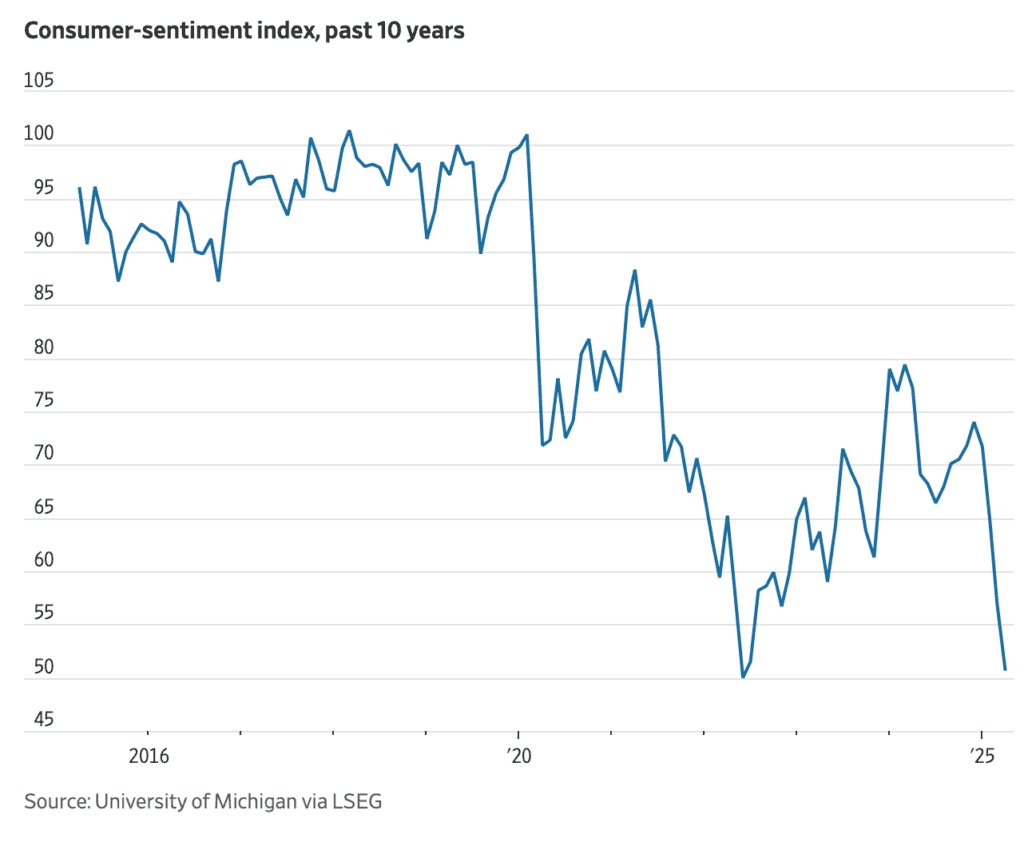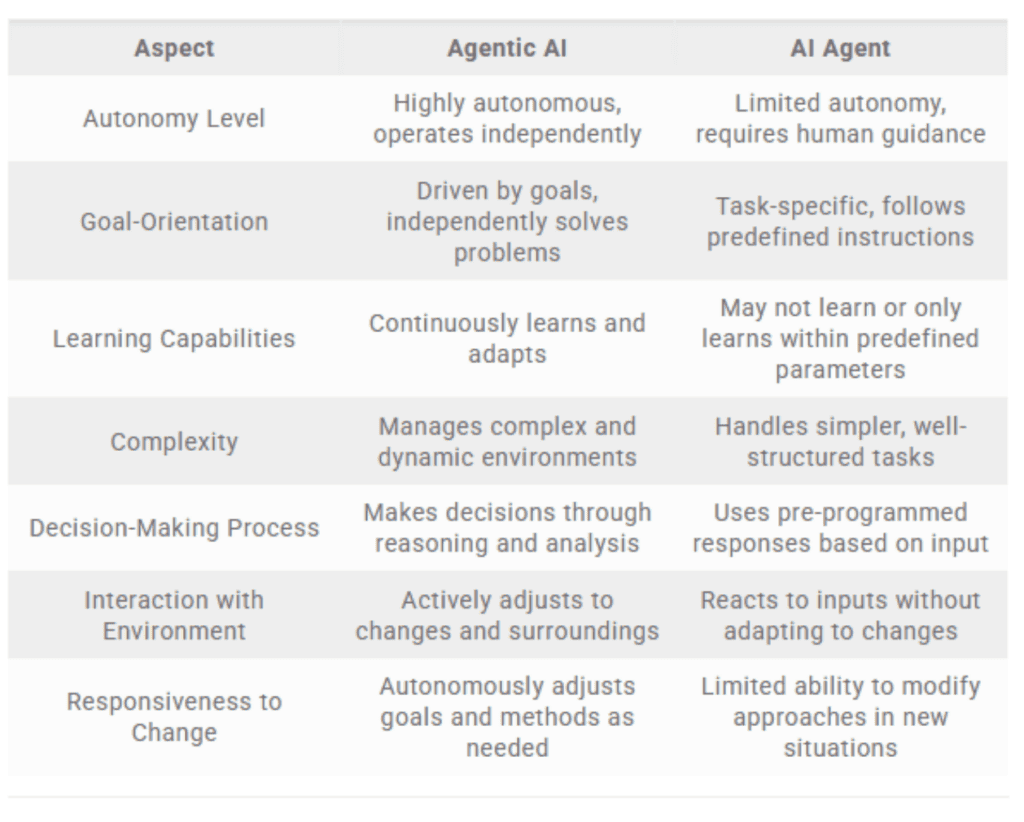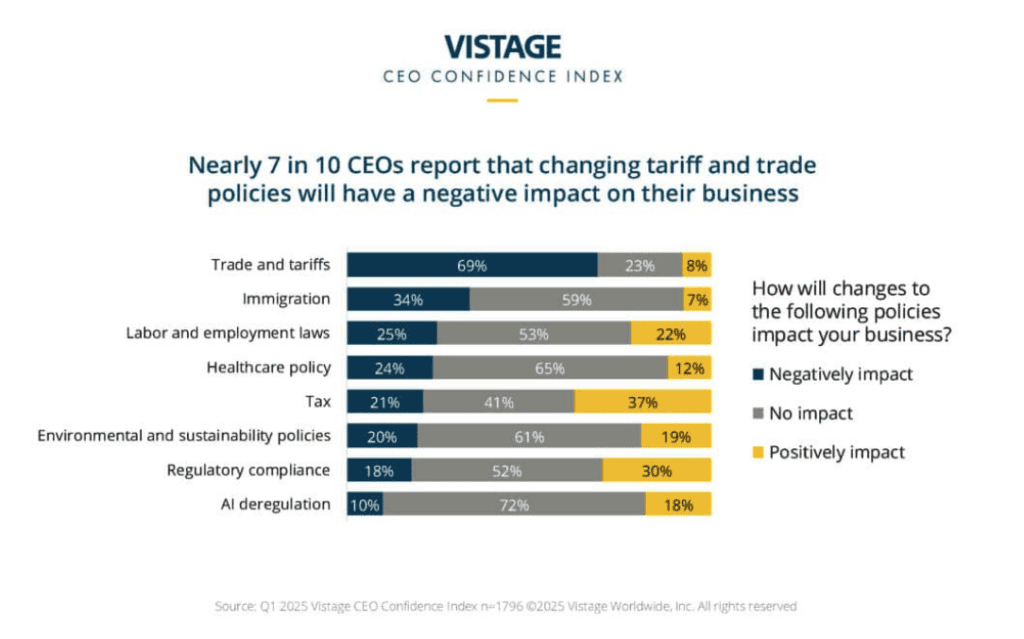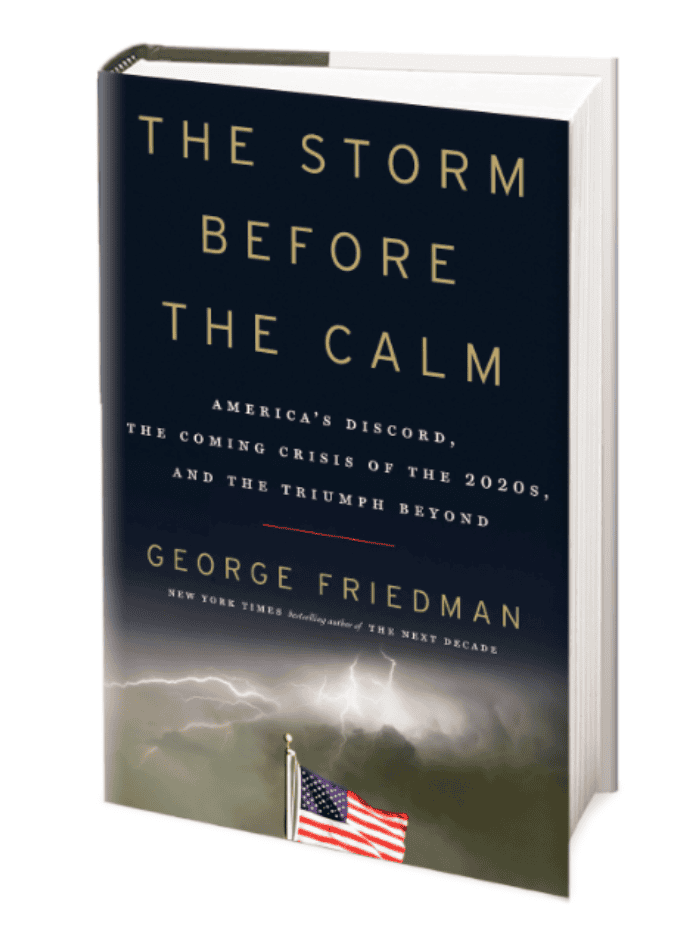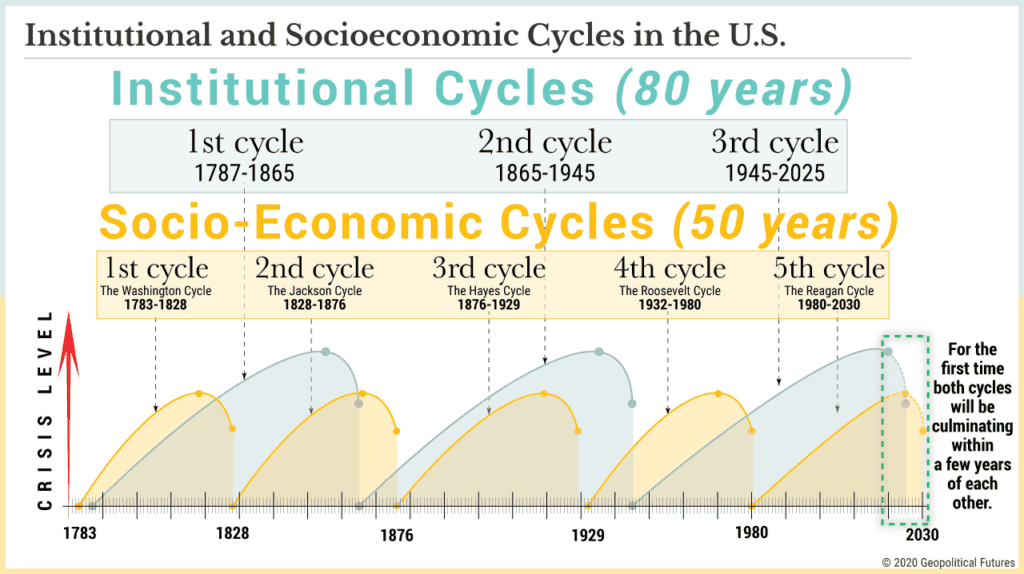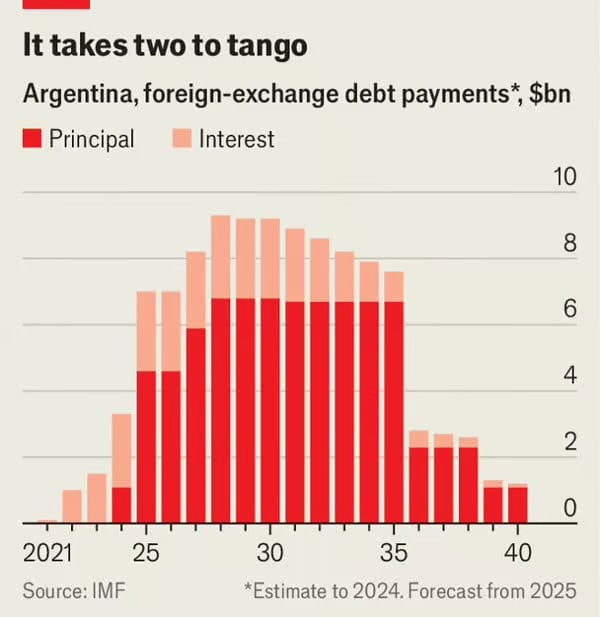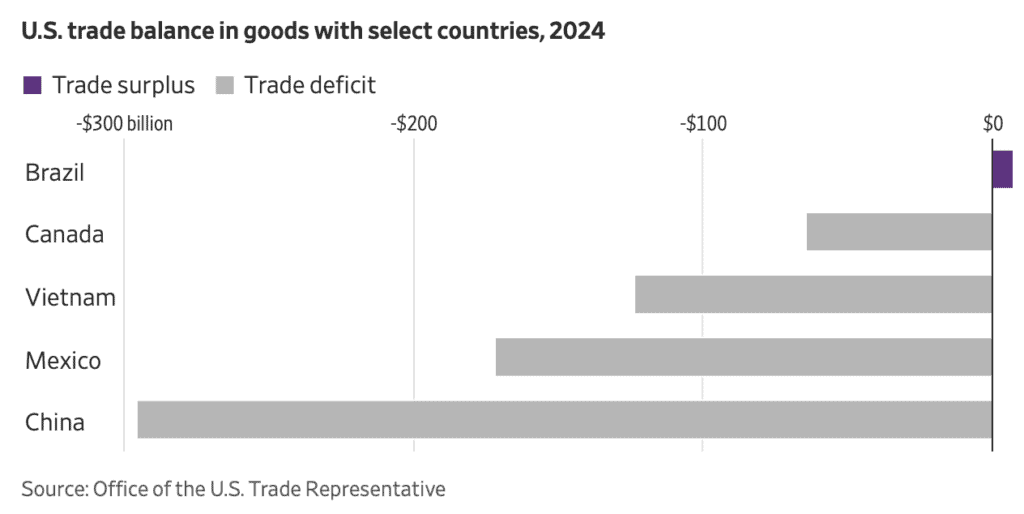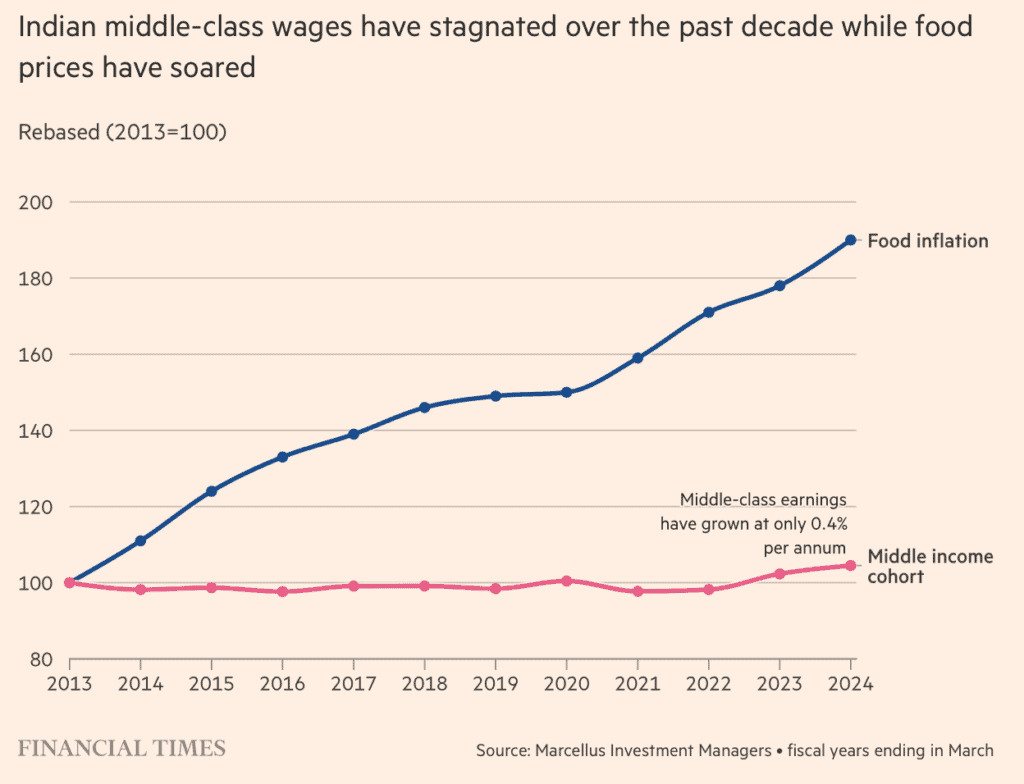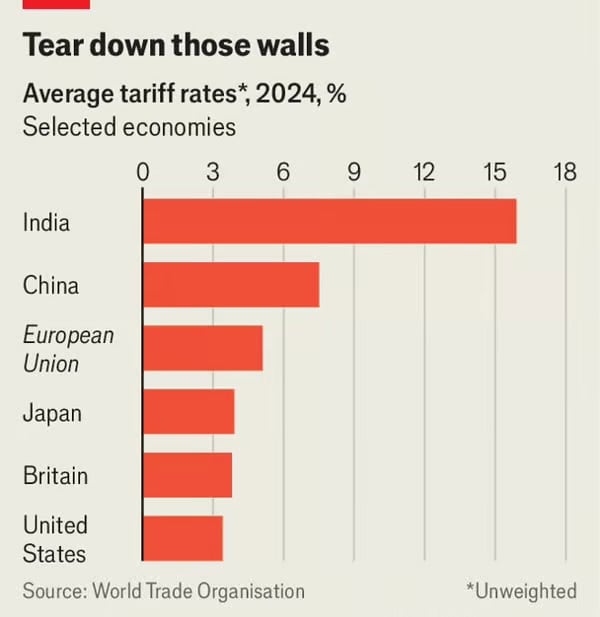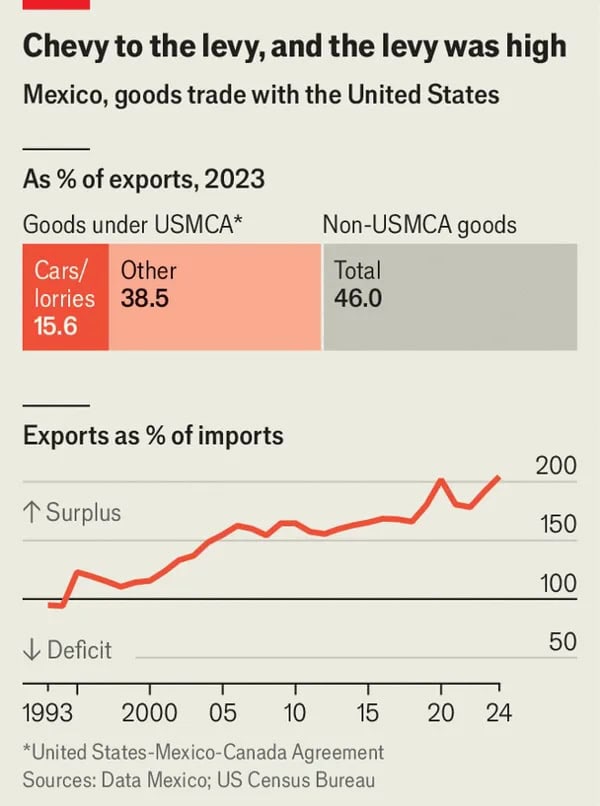Uncertainty, Historic Market Rally, Tariff Chaos , CEO Confidence
Commentary for the 132nd issue: The quotes in this issue are all about the tariff and trade situation we find ourselves in today. In stunning U-turn, Trump walks back some tariffs, triggering historic market rally. Extreme’ US-China decoupling could cost US$2.5 trillion in equity, bond sell-off: Goldman. Companies Getting ‘A Bit Tired’ of Tariff Chaos, DHL CEO Says . Uncertainty returns CEO confidence to pre-election levels.
One More Thing: Ladies and Gentlemen, this is getting serious – China has ordered its airlines not to take any further deliveries of Boeing Co. jets or parts from the US as part of the tit-for-tat trade war that’s seen US President Donald Trump levy tariffs of as high as 145% on some Chinese goods.
+++++++++++++++++++++++++++++++++++++++++++++++++++++++++++++++++++++++++++++++++++++++++
But First……The mission of this newsletter is to use trusted global and regional information sources plus our network of 20+ in-country Associates to update our global readers on key global and local trends that can impact the success of their businesses at home and abroad. We subscribe to about 40 international information sources to keep our readers up to date on the world’s business.
PLEASE NOTE: Some of the information sources that we provide links to in our newsletter require a paid subscription to directly access them. Clicking on a link may not give the reader access to the content.
Edited and curated by: William (Bill) Edwards, CEO & Global Business Advisor, Edwards Global Services, Inc. (EGS), Irvine, California, USA. Contact Bill with questions, comments and contributions. Bedwards@edwardsglobal.com, +1 949 375 1896
Link to our current and past newsletters: https://edwardsglobal.com/geowizard/
+++++++++++++++++++++++++++++++++++++++++++++++++++++++++++++++++++++++++++++++++++++++++
First, A Few Words of Wisdom From Others For These Times
“Tariffs will raise prices, slow growth, and increase recession risk.” – Jamie Dimon, CEO, JPMorgan Chase
“Most CEOs I speak with believe the U.S. is already in recession.” – Larry Fink, CEO, BlackRock
“We’re committed to keeping prices low during this turbulent time.” – Doug McMillon, CEO, Walmart
“Apple is accelerating India-made iPhone shipments to avoid tariff impacts.” – Tim Cook, CEO, Apple
“Tariffs raise prices, cut profits, and increase unemployment.” – David Kelly, Global Strategist, J.P. Morgan AM
++++++++++++++++++++++++++++++++++++++++++++++++++++++++++++++++++++++++++++++++++++++++
Highlights in issue #132:
In stunning U-turn, Trump walks back some tariffs, triggering historic market rally
Extreme’ US-China decoupling could cost US$2.5 trillion in equity, bond sell-off: Goldman
Companies Getting ‘A Bit Tired’ of Tariff Chaos, DHL CEO Says
China Orders Boeing Jet Delivery Halt as Trade War Expands
Why Europe is a Prime Destination for U.S. Restaurant Franchise Brands
Uncertainty returns CEO confidence to pre-election levels [Q1 2025 CEO Index]
Agentic AI: What It Is, How It Works, and Why It Matters
Brand Global News Section: Burger King®, McDonalds® and Tim Hortons®
+++++++++++++++++++++++++++++++++++++++++++++++++++++++++++++++++++++++++++++++++++++++
Interesting Data, Articles and Studies
“Companies Getting ‘A Bit Tired’ of Tariff Chaos, DHL CEO Says – Fatigue is setting in among companies and manufacturers trying to navigate President Donald Trump’s whipsawing tariff moves, according to DHL Group Chief Executive Officer Tobias Meyer. Meyer, head of one of the world’s biggest logistics companies, warned companies and people are getting “a bit tired” with the constantly shifting announcements. ‘They don’t know, even if something is announced, whether two days later it’s not changed again,” Meyer said in an interview on Bloomberg Television. “You really see some fatigue of decision makers in manufacturing and also in the distribution sector.’, Bloomberg, April 13, 2025
==================================================================================================
‘From Anxious to Petrified’: Consumer Sentiment Plunges Further – The University of Michigan’s closely watched index hit its second-lowest reading on record, dragged down by fears of higher prices and unemployment. The University of Michigan’s consumer-sentiment index, released Friday, nosedived to 50.8 in April from 57 last month. Sentiment has been falling steadily throughout 2025. Expectations for inflation also hit the highest level in 44 years, according to the survey. Sentiment is now at its second-lowest level in history, according to the survey. It was slightly lower in June 2022, when inflation was soaring thanks to snarled supply chains and pandemic buying. Back in 2022, the index touched 50, which was the lowest reading on record going back to 1952. Sentiment declined for Democrats, Republicans and independents alike.”, The Wall Street Journal, April 11, 2025
============================================================================================
Agentic AI: What It Is, How It Works, and Why It Matters – Agentic AI isn’t exactly a new concept. Researchers have been digging into it for years. But over the past year, interest has really taken off, and it’s not just hype. According to Deloitte’s State of Generative AI in the Enterprise report, survey respondents identified agentic AI (52%) and multi-agent systems (45%), its more advanced form, as AI’s two most intriguing aspects today. Agentic AI is an advanced form of artificial intelligence designed to complete tasks with minimal human involvement. It addresses challenges in real time using AI agents — machine learning models that simulate human decision-making. In a multi-agent system, each of these agents takes a smaller task, and when they work together, they’re coordinated seamlessly to hit a larger goal. Traditional AI follows tight rules and requires human input, whereas agentic AI is more autonomous.”, From a LinkedIn post on April 14, 2025 by Neil Sahota, Chief Executive Officer ACSILabs Inc
=============================================================================================
Uncertainty returns CEO confidence to pre-election levels [Q1 2025 CEO Index] – Uncertainty rules, much like it did through the recovery phase of a post-pandemic economy. The hopes and beliefs following the election for a pro-business tax and regulatory environment, along with stabilized inflation and interest rates and increased business activity, have been replaced by mounting concerns about economic instability. With this uncertainty comes a reversal in post-election optimism, as the Vistage CEO Confidence Index fell 22.1 points to 78.5 in Q1 2025. The dramatic quarter-over-quarter drop is historic on the surface, but in reality, it’s just a 6.6-point drop from the Q3 2024 reading of 85.1 and is still above levels recorded in 2022 and 2023.”, Vistage, April 7, 2025
++++++++++++++++++++++++++++++++++++++++++++++++++++++++++++++++++++++++++++++++++++++++++++
Global Supply Chain, Energy, Commodities, Inflation, Taxes & Trade Issues
“Chaos at European ports as trade war leaves ships in limbo – Queues are building across UK and Europe amid tit-for-tat tariffs and plan to impose $1m fee on Chinese-made vessels docking in the US. Major ports across the UK and mainland Europe are clogging up as ships carrying goods between the US and China are left in limbo due to the trade war between the world’s largest two economies. Donald Trump’s decision to impose tariffs of 145 per cent on Chinese imports — and Beijing’s retaliatory taxes of 125 per cent — has sparked chaos among shipping operators as end-customers renege on orders. Hundreds of ships are queuing up to enter ports across Germany, Italy, the Netherlands and the UK, with industry executives now worried that the chaos could be just the start of serious disruption. US officials will this week unveil plans for a $1 million fee — up from between $20,000 and $50,000 — to be imposed on all Chinese-made vessels docking at American ports.”, The Times of London, April 13, 2025
++++++++++++++++++++++++++++++++++++++++++++++++++++++++++++++++++++++++++++++++++++++++++++
Book Review
The Storm Before the Calm: America’s Discord, the Coming Crisis of the 2020s, and the Triumph Beyond
The master geopolitical forecaster and New York Times bestselling author of The Next 100 Years focuses on the United States, predicting how the 2020s will bring dramatic upheaval and reshaping of American government, foreign policy, economics, and culture.
In his riveting new book, noted forecaster and bestselling author George Friedman turns to the future of the United States. Examining the clear cycles through which the United States has developed, upheaved, matured, and solidified, Friedman breaks down the coming years and decades in thrilling detail.
American history must be viewed in cycles—particularly, an eighty-year “institutional cycle” that has defined us (there are three such examples—the Revolutionary War/founding, the Civil War, and World War II), and a fifty-year “socio-economic cycle” that has seen the formation of the industrial classes, baby boomers, and the middle classes. These two major cycles are both converging on the late 2020s—a time in which many of these foundations will change. The United States will have to endure upheaval and possible conflict, but also, ultimately, increased strength, stability, and power in the world.
++++++++++++++++++++++++++++++++++++++++++++++++++++++++++++++++++++++++++++++++++++++++
The Accredited Franchise Supplier certification
+++++++++++++++++++++++++++++++++++++++++++++++++++++++++++++++++++++++++++++++++++++++++++++
Country & Regional Updates
Argentina
“How Milei made Argentina deserving of an IMF bail-out – He offers the only way out of a supremely difficult situation. Since December, when the imf’s last agreement with Argentina ran out, the country’s president has sought a fresh bail-out. Indeed, his efforts include an executive order to remove the need for Congress to approve the deal. Since its first bail-out in 1958, the country has become the fund’s most difficult customer, endlessly stacking up debts, which now come to $41bn (or 28% of all of the imf’s lending). Mr Milei’s first deal will be Argentina’s 23rd. As the fund contemplates just how much cash to hand over, the question is whether his vim can overcome the country’s spendthrift tendencies.”, The Economist, April 3, 2025
==============================================================================================
Brazil
“Brazil’s Stagnant Economy Is the Poster Child for High Tariffs – While high tariffs protect some jobs in the country, they have also driven up costs for consumers and helped make domestic industry inefficient. Brazil’s World War II-era policy of protectionism has kept some jobs home but has also driven up costs for consumers and, according to economists, stifled competition and innovation. That iPhone 16 made in Brazil costs almost twice as much as a Chinese-made model sold in the U.S. for $799. The strategy has done little to boost Brazil’s industrial production. On the contrary, it has lowered productivity and led to some notorious price-fixing scandals, economists said. Manufacturing made up 36% of gross domestic product in 1985. Now it has fallen to about 14%, the worst example of “premature deindustrialization” in the world, according to the São Paulo-based Institute for the Study of Industrial Development. Growing at a little over 2% a year on average for the past two decades, Brazil never became the economic powerhouse its leaders once envisioned, limiting its influence on the world stage. Brazil’s labor productivity is about a quarter of that of the U.S., according to Our World in Data, a database compiled at the University of Oxford.”, The Wall Street Journal, April 12, 2025
===============================================================================================
China
| “China Orders Boeing Jet Delivery Halt as Trade War Expands – China has ordered its airlines not to take any further deliveries of Boeing Co. jets as part of the tit-for-tat trade war that’s seen US President Donald Trump levy tariffs of as high as 145% on Chinese goods, according to people familiar with the matter. Beijing has also asked that Chinese carriers halt any purchases of aircraft-related equipment and parts from US companies, the people said, asking not to be identified discussing matters that are private. The order came after China unveiled retaliatory tariffs of 125% on American goods this past weekend, the people said. Those levies on their own would have more than doubled the cost of US-made aircraft and parts, making it impractical for Chinese airlines to accept Boeing planes.”, Bloomberg, April 15, 2025 ============================================================================================ |
| “UPS reinstates China-to-US fee — with no end date – The $0.29 per pound surcharge is returning April 13 as the two countries’ trade war continues to escalate. The parcel carrier did not list an end date for the “Surge Fee,” which has a rate that can be adjusted at any time. The fee applies to a shipment’s billable weight and is also subject to UPS’ fuel surcharge. UPS previously levied the Surge Fee from March 16-29. The company said with the added surcharge, it aims to continue satisfying shippers’ needs ‘without compromising on the quality or timeliness of service expected from us.”’ The surcharge’s return comes as supply chains attempt to navigate volatile trade relations between the U.S. and China, and heavy price hikes for goods traveling between the two countries.”, Supply Chain Dive, April 11, 2025 ==============================================================================================
“‘Extreme’ US-China decoupling could cost US$2.5 trillion in equity, bond sell-off: Goldman – Threat of decoupling emerged after Treasury Secretary Scott Bessent said delisting of US-traded Chinese companies was back on the table. US investors could be forced to sell nearly US$800 billion of Chinese stocks trading on American exchanges in case of a decoupling, the US investment bank’s analysts led by Kinger Lau and Timothy Moe said in a report on Monday. On the flip side, China could liquidate its US Treasury and equity holdings amounting to US$1.3 trillion and US$370 billion, respectively. The sell-off was based on the assumption that US investors would be restricted by US regulations from such investments, they said.”, South China Morning Post, April 14, 2025 |
=============================================================================================
India
“How India’s middle-class debt crisis is threatening growth – A rise in unsecured credit among a consumer group that symbolises the country’s investment potential is hurting its economic ambitions. ‘Everybody wants a laptop, everybody wants a TV, everybody wants a smartphone,’ says Anil Agarwal, the billionaire chair of Indian natural resources and energy conglomerate Vedanta. ‘They want a car, they want a scooter and their children to study in a good school — demand is tremendous.’ But a day of reckoning is fast approaching. Household debt has grown to about 43 per cent of GDP in June, from just over 35 per cent in March 2020, according to the latest RBI data. A crackdown in 2023 by the Reserve Bank of India, which warned retail lending was getting out of hand, has hit financial sector earnings just as many Indians are struggling to repay their loans.”, The Financial Times, April 13, 2025
==============================================================================================
“India sees opportunity, as well as risk, in Trump’s trade war – Narendra Modi hopes to strike a deal that will unleash growth. On April 2nd Mr Trump unveiled “reciprocal” tariffs on America’s trade partners, including a 27% levy on Indian goods. In public, Indian officials sound upbeat. They suggest India can weather any short-term pain and quickly agree to a trade deal with America that would unleash growth. Some even compare it to 1991. But privately many worry that any deal would face fierce resistance at home. And a drawn-out trade war could jeopardise the ambitious economic and political agenda of the prime minister, Narendra Modi. India had tried to appease Mr Trump by reducing tariffs on goods including bourbon and motorbikes before Mr Modi visited Washington in February.”, The Economist, April 2, 2025
================================================================================================
Mexico
“Can Mexico make hay after avoiding the reciprocal-tariff tantrum? It may struggle to do so. The United States is Mexico’s key trading partner, receiving more than 80% of Mexican exports—equivalent to just under 30% of Mexico’s gdp. This is a larger share than any other emerging market’s. Although Mexico is still vulnerable to Mr Trump’s fickle policymaking, for the time being it has an opportunity to seize. Today 49% of Mexican exports travel under the rules-of-origin requirements of the United States-Mexico-Canada Agreement (usmca), and continue to enjoy tariff-free access. The rest is subject to a 25% tariff that Mr Trump announced in February.”, The Economist, April 10, 2025
==============================================================================================
New Zealand
New Zealand
“New Zealand Central Bank Cuts Rates, Keeps Door Open to More – The central bank cut the official cash rate to 3.50% from 3.75%. New Zealand’s central bank has lowered interest rates, making it one of the first central banks to respond to the economic threats posed by the escalating trade war. The Reserve Bank of New Zealand on Wednesday brought its official cash rate to 3.50% from 3.75% and left the door open to further cuts “as the extent and effect of tariff policies become clearer.” It said the Trump administration’s trade policies could slow global growth soon. Will the U.S. follow suit? Federal Reserve Chair Jerome Powell said last week that the central bank doesn’t need to rush to lower rates, indicating that a cut isn’t on the table at its May meeting. He said the Fed would know more “as the months go by.”, The Wall Street Journal, April 9, 2025
===============================================================================================
United Kingdom
“Britain is unusually well shielded from a tariff shock – Credit good luck more than diplomatic ingenuity. But as Donald Trump’s on-and-off-again tariff rodeo shakes the world economy, Britain has found itself in the rather unfamiliar position of being quite well insulated, and even in places poised to benefit from the turmoil. Certainly, any global slowdown would be bad news for an open and internationally exposed economy like Britain’s. But the direct hit from Mr Trump’s new tariffs is unlikely to be vast. Even before Mr Trump appeared to climb down on April 9th, offering a 90-day pause on tariffs above 10% to all countries except China, Britain had landed with the lowest 10% rate on most of its goods exports. Unlike every other economy of comparable size, though, the bulk of British exports are in services, which are not directly affected by the tariff conversation. America is Britain’s second-largest trading partner, after the European Union (eu), but two-thirds of that trade is in services, mostly in desk work like banking or law.”, The Economist, April 8, 2025
===============================================================================================
United States
“In stunning U-turn, Trump walks back some tariffs, triggering historic market rally – Trump’s turnabout on Wednesday, which came less than 24 hours after steep new tariffs kicked in on most trading partners, followed the most intense episode of financial market volatility since the early days of the COVID-19 pandemic. The upheaval erased trillions of dollars from stock markets and led to an unsettling surge in U.S. government bond yields that appeared to catch Trump’s attention. Since returning to the White House in January, Trump has repeatedly threatened an array of punitive measures on trading partners, only to revoke some of them at the last minute. The on-again, off-again approach has baffled world leaders and spooked business executives, who say the uncertainty has made it difficult to forecast market conditions. The day’s events cast into stark relief the uncertainty surrounding Trump’s policies and how he and his team create and implement them.”, Reuters, April 9, 2025
+++++++++++++++++++++++++++++++++++++++++++++++++++++++++++++++++++++++++++++++++++++++++++++
Taking Brands Global Successfully For 5 Decades
++++++++++++++++++++++++++++++++++++++++++++++++++++++++++++++++++++++++++++++++++++++++++++
Global Brand & Franchise Sector News
“Why Europe is a Prime Destination for U.S. Restaurant Franchise Brands – The European market has become increasingly attractive to U.S.-based restaurant franchise brands, driven by diverse growth opportunities and consumer demand. With its blend of mature and emerging markets, rich culinary culture, and expanding urbanization, Europe offers a fertile ground for restaurant brands seeking to extend their global reach. Europe offers U.S. restaurant franchises a compelling combination of mature markets, high consumer demand, and strategic expansion opportunities. By leveraging strong franchise partnerships, adapting to cultural preferences, and strategically targeting both mature and emerging markets, American brands can achieve sustained success across the continent. However, to thrive in this complex environment, U.S. brands must prioritize local adaptation and long-term planning. With the right strategy, Europe can become a cornerstone of global growth for ambitious restaurant franchises.”, Franchising.com, April 2025. By Rebecca Viani is Partner with WhiteSpace Partners, a London-based firm, focused on the development and execution of market entry, franchise development, and acquisition strategies for restaurant brands expanding into Europe and the Middle East.
===============================================================================================
‘Navigating International Franchising: Lessons from Expanding into the UK – Expanding a franchise into a new international market is both an exciting opportunity and a complex challenge. While the United Kingdom offers a promising landscape for franchise growth, its unique regulatory framework, consumer expectations, and business environment require a thoughtful and strategic approach. Expanding a franchise internationally, especially in a well-regulated and competitive market like the United Kingdom, requires patience, adaptability, and a strong strategy. Understanding local consumer behavior, navigating legal challenges, building a strong team, and utilizing franchise support systems are essential to a smooth and successful market entry. While every international expansion comes with its own set of hurdles, approaching the process with a clear plan and local expertise makes all the difference. With the proper foundation in place, franchising in the UK can be an incredibly rewarding endeavor that opens the door to long-term growth and sustainability.”, Franchising.com, April 2025, By Matias Puga H. is master franchise owner, School of Rock Latin America and School of Rock United Kingdom.
============================================================================================
“Who’s the King now Trade Mark troubles in the Burger Kingdom? The long running legal battle between Burger King Corporation and a Pune-based eatery in the case of Anahita Irani & Anr. Vs. Burger King Corporation[1] raises important questions about trademark rights, territoriality, and the protection of local business interests. At the heart of the dispute is the use of the trade name Burger King, a mark registered in India by the multinational fast-food giant, but which has been used by the Pune restaurant since 1992, long before the company entered the Indian market. The case highlights tension between the global reach of multinational corporations and the rights of prior users of a trademark in a specific jurisdiction. The Pune restaurant had been using the words ‘Burger King’ since 1992 in India and the US-based Burger King Corporation, entered the Indian market in 2014. Burger king corporation had been using the mark and trade name ‘Burger King’ since 1954 and operated a worldwide chain of 13,000 fast food restaurants in more than 100 countries. Moreover, it had registered the mark in India in 1979.”, Chadha & Chadha Intellectual Property Law Firm from Paul Jones, Jones & Co., Toronto
===============================================================================================
“Tim Hortons launches retail coffee range in South Korea – Tim Hortons has launched its retail lineup in South Korea as part of its strategy to broaden the brand’s reach. ‘Like all Tim Hortons coffees, our bagged coffee retail products start with 100 per cent premium Arabica beans that are roasted with care and blended to perfection,’ said Mieka Burns, VP of consumer packaged goods at Tim Hortons. ‘Guests can already savour their favourite Tim Hortons beverages in restaurants and they can now complement that experience at home.’ Tim Hortons’ whole bean and fine grind coffee are available at the Lotte Mart grocery store in Gangdong Millennial Jungheung S-Class Complex, and will soon be available in department stores and online. The Canadian coffee chain debuted in South Korea in 2023 and has quickly expanded to 16 locations.”, Inside Retail, April 11, 2025. Compliment of Paul Jones, Jones & Co., Toronto
===============================================================================================
“McDonalds Philippines gears up for aggressive store expansion – McDonald’s Philippines is gearing up for a more aggressive store expansion, with plans to add 800 stores in its network before its new 20-year franchise term expires. Kenneth Yang, president and CEO of Golden Arches Development Corp. (GADC), also known as McDonald’s Philippines, said the company is looking to open more or less 65 new stores this year. ‘Most likely we should grow about the same as what we did last year which is 65 stores. Hopefully, we surpass it (this year), but most likely, it’s like that,’ he said. Yang said that McDonald’s Philippines’ upcoming expansion will not be primarily in the National Capital Region anymore.”, MSN, April 8, 2025. Compliments of Paul Jones, Jones & Co., Toronto
++++++++++++++++++++++++++++++++++++++++++++++++++++++++++++++++++++++++++++++++++++++++++++++
To receive our biweekly newsletter in your email every other Tuesday, click here – https://insider.edwardsglobal.com
+++++++++++++++++++++++++++++++++++++++++++++++++++++++++++++++++++++++++++++++++++++++++++++++
Our Mission, Information Sources & Who We Are
Our biweekly global business update newsletter focuses on what is happening around the worldthat impacts new trends, health, consumer spending, business investment, the franchise sector, economic development, and travel. We daily monitor 30+ countries, 40+ international information sources and six business sectors to keep up with what is going on in this ever-changing business environment. And our GlobalTeam on the ground covering 25+ countries provide us with updates about what is actually happening in their specific countries. We do not get involved in or report on politics!
on the ground covering 25+ countries provide us with updates about what is actually happening in their specific countries. We do not get involved in or report on politics!
+++++++++++++++++++++++++++++++++++++++++++++++++++++++++++++++++++++++++++++++++++++++++++
William “Bill” Edwards: Global Advisor Is Uniquely Qualified to Steer Sr. Executives Successfully Through the Complex Waters of Going Global. With four decades of successful international business experience spanning virtually every corner of the world and many business sectors, Bill Edwards understands the global business landscape like no other. He has been a County Master Franchisee in five countries in Asia, Europe, and the Middle East; the Senior VP for a franchisor operating in 15 countries and a full-service consultant since 2001 taking 40+ companies global.
| To receive this biweekly newsletter in your email every other Tuesday, click here – https://insider.edwardsglobal.com +++++++++++++++++++++++++++++++++++++++++++++++++++++++++++++++++++++++ |
For a complimentary 30-minute consultation on how to take your business into new countries and make money doing it. For a complimentary call with Bill Edwards click on the QR code or contact Bill at bedwards@edwardsglobal.com and +1 949 375 1896

